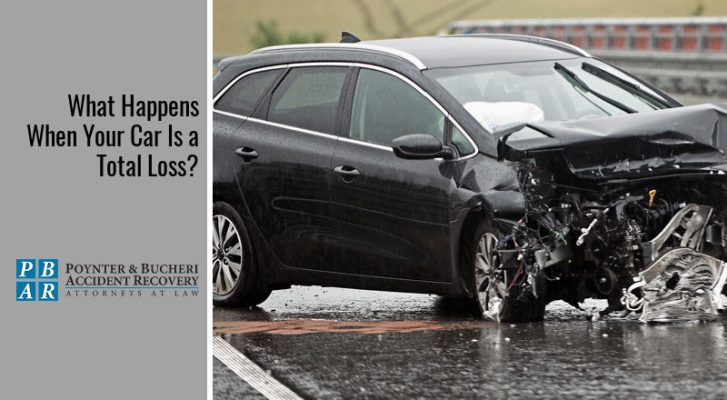
What Happens When Your Car Is a Total Loss?

Experiencing a car accident is never easy, especially when the wreck involves a totaled vehicle. Fortunately, you should be able to receive compensation for your totaled vehicle from your insurance company or the at-fault driver.
In this blog, we discuss common questions people have regarding totaled vehicles including when is your car considered a total loss, how insurance companies compensate drivers for totaled vehicles, and what you should do after totaling your car.
When is Your Car Considered a Total Loss?
A vehicle is considered a total loss when the cost to cover repairs outweighs the value of the car itself. Additionally, different states have their own thresholds when it comes to determining the point at which a vehicle is considered totaled.
In Indiana, insurance companies consider cars totaled when the cost of repairs is over 70% of what the vehicle is worth. For example, let’s say that you experience a car accident in which your vehicle that’s worth $10,000 needs repairs. If your repairs cost over $7,000, insurance companies consider the vehicle a total loss because the repairs cost more than 70% of the car’s worth.
When you total your vehicle, either you or the at-fault driver’s company will give you the cash value of the car, and they will take possession of the damaged car. If you wish to retain the car even though it’s totaled, the insurance company will reduce the amount of payment you’ll receive by the damaged vehicle’s value. For example, if you wish to retain your totaled vehicle now worth $1,000 due to its serious damages, the insurance company will reduce the amount of money you’ll receive by $1,000.
How Do Insurance Companies Estimate the Cash Value of Totaled Vehicles?
Insurance companies value totaled vehicles in a similar way as the Kelley Blue Book system. They take considerations including your vehicle’s make and model, the condition of the vehicle before the accident, and the vehicle’s mileage. Fortunately, you can use the Kelley Blue Book as a frame of reference for how much you should receive from an insurance company for your loss.
If you owe a car loan balance on the totaled vehicle, the amount you’ll receive to pay off the remaining balance will depend on whether or not you purchased general auto protection insurance, commonly referred to as “GAP insurance.” GAP insurance is designed to cover the difference between the amount you’ll receive for your totaled vehicle and your remaining balance on the vehicle. For example, you could only receive $5,000 for your totaled car while still owing a car financier $7,000. GAP insurance would cover the remaining $2,000 you owe to the financier.
If you don’t have GAP insurance and you owe more than you receive from an insurance company for your totaled vehicle, you’re responsible for paying the difference.
What Should I Do After Totaling My Car
After suffering from an Indianapolis car accident, you need to collect evidence if you’re physically able. This will help you prove your claim if you have a dispute with another driver or their insurance company. You can take photographic and video evidence on your smartphone, and you can collect eyewitness testimonies at the scene. Additionally, you need to write down the names and contact information of anyone else who was involved in the accident as well as any eyewitnesses.
Indiana is an at-fault state, which means that it’s the responsibility of the at-fault driver or their insurance company to compensate you for the cash value of your totaled vehicle. If there’s a dispute with the other driver or their insurance company, you can use evidence to prove your claim.
It’s important to note that Indiana is a modified comparative negligence state, which comes into play if both you and the other driver were partially at fault for the wreck. Multiple drivers may share partial blame for an accident and this impacts the amount you can recover. For example, if the other driver was distracted and wrecked into you but you were driving over the speed limit at the time, the other driver may bear 90% of the liability while you bear 10%. The higher your percentage of blame, the less you can recover in compensation from the other driver.
Indiana drivers have the right to seek compensation for injuries and damages from another driver as long as they are less than 51% at fault for the accident. If you were more than 51% to blame, you cannot recover damages.
Need an Indiana Attorney for Your Car Accident Case? Contact Poynter & Bucheri Today
Recovering the cash value of your totaled vehicle from an insurance company or an at-fault driver is frequently a straightforward process, but if you have a claim dispute or if you’ve suffered from personal injuries, you may need a personal injury attorney to assist you with your case.
For seasoned legal guidance in car accident cases, contact the lawyers at Poynter & Bucheri Accident Recovery Attorneys at Law. Call our office at 1-800-265-9881, or you can click here to schedule a free case review.
